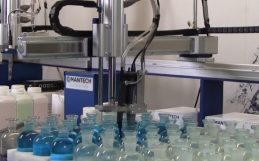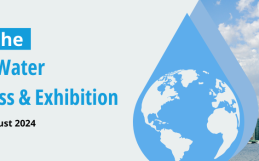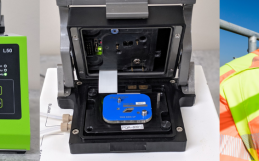Dalhousie University, MANTECH’s long-term research partner, has conducted research that shows the latest COVID-19 variant, Omicron, was first detected in Nova Scotia’s wastewater weeks before its discovery in the province and prior to its identification in South Africa. Professor and Director of the Centre for Water Resource Studies, Dr. Graham Gagnon confirmed that Omicron had been detected in Novia Scotia wastewater in mid-November, before its initial report. Just weeks after the report, Nova Scotia saw its first local case of the variant on December 13, 2021. Since December 2020, Dr. Gagnon’s team has been examining wastewater from student residences on the Dalhousie campus as well as four main treatment plants.
Mark Servos, professor, and researcher at the University of Waterloo suggests that wastewater testing is a crucial aspect when it comes to the spread and detection of COVID-19 now and in the future. As Omicron continues to be the dominant variant, wastewater is going to either go up or down, helping to gauge the severity of cases within each province. With cases on the rise and the access to PCR and rapid tests becoming increasingly difficult, measuring COVID-19 cases continues to be a challenge. Wastewater testing provides officials with early warning signs of COVID-19, weeks before it is reported, determining when and how many COVID-19 cases will occur.
Global Impact
Wastewater testing for COVID-19 has rapidly increased globally with over 2,200 testing sites in 55 countries and is a crucial aspect in the detection of COVID-19. With the use of wastewater testing worldwide, results can monitor health threats among regions helping to inform public health of potential outbreaks. Early outbreak detection through wastewater testing can enhance public health measures of COVID-19, monitoring the increased risk of transmission. Research conducted in the Netherlands revealed that pathogens that cause COVID-19 were present in wastewater collection, weeks before COVID-19 was initially confirmed and reported. Conducting research and collecting information on wastewater worldwide, increases the detection of the virus among the population, and is an essential tool that can monitor both the short-term and long-term effects of the COVID-19 pandemic.
Dr. Gagnon’s Research
As long-term research partners with the Centre for Water Resource Studies (CWRS) at Dalhousie University, the director of the CWRS, Dr. Graham Gagnon has done extensive research investigating new methods and instruments for monitoring water quality. Dr. Gagnon’s research has led to the ASTM International Method-D8084, based on PeCOD® technology and drinking water application for PeCOD® for the quantification of natural organic matter (NOM). Through Dr. Gagnon’s research, utilities worldwide rely on PeCOD®’s drinking water application to provide an “optimized” TOC to monitor their daily treatment and operations. With the results of the PeCOD, given in 10 minutes or less, it is an ideal tool that utilizes safe, green methods, giving operators critical information to maintain effluent quality through times of NOM fluctuation.
Servos Group Wastewater Testing
Mark Servos, professor, and researcher at the University of Waterloo conducts research in the broad areas of Ecotoxicology and Integrated Water Resources Management, with current research focusing on analyzing exposure and effects of contaminants in the environment. Dr. Servos currently leads a research group in the Department of Biology called the Servos Group. During the COVID-19 pandemic, the Servos group shifted its research to support public health by conducting wastewater surveillance of COVID-19. Early on into the COVID-19 pandemic, the Servos Group recognized that their experience with wastewater and molecular biology studies could help to measure COVID-19 in wastewater, conducting wastewater surveillance across Ontario. The Servos Group has been working closely with public health units to provide an additional tool to inform public health responses. With extensive research in Ecotoxicology and Integrated Water Resources Management, Dr. Servos has experience conducting research with MANTECH’s Automated PeCOD, the fastest available method for quantifying COD, providing real-time data while enhancing environmental protection with the elimination of harmful chemicals such as dichromate and mercury.
With the research and development, both conducted at Dalhousie University and the University of Waterloo, MANTECH’s PeCOD system is an integral part of wastewater and drinking water applications as it is highly adaptable. Throughout the pandemic, wastewater testing has become a crucial factor in the surveillance of COVID-19 detection in Canada and internationally. The monitoring of wastewater can reveal the early warning signs of COVID-19 worldwide helping to inform public health officials of ongoing COVID-19 patterns.
Want to learn more about wastewater testing? Stay in the loop with MANTECH’s E-Newsletter.
Read more: Omicron was in Nova Scotia wastewater before it was identified in South Africa | National Post









